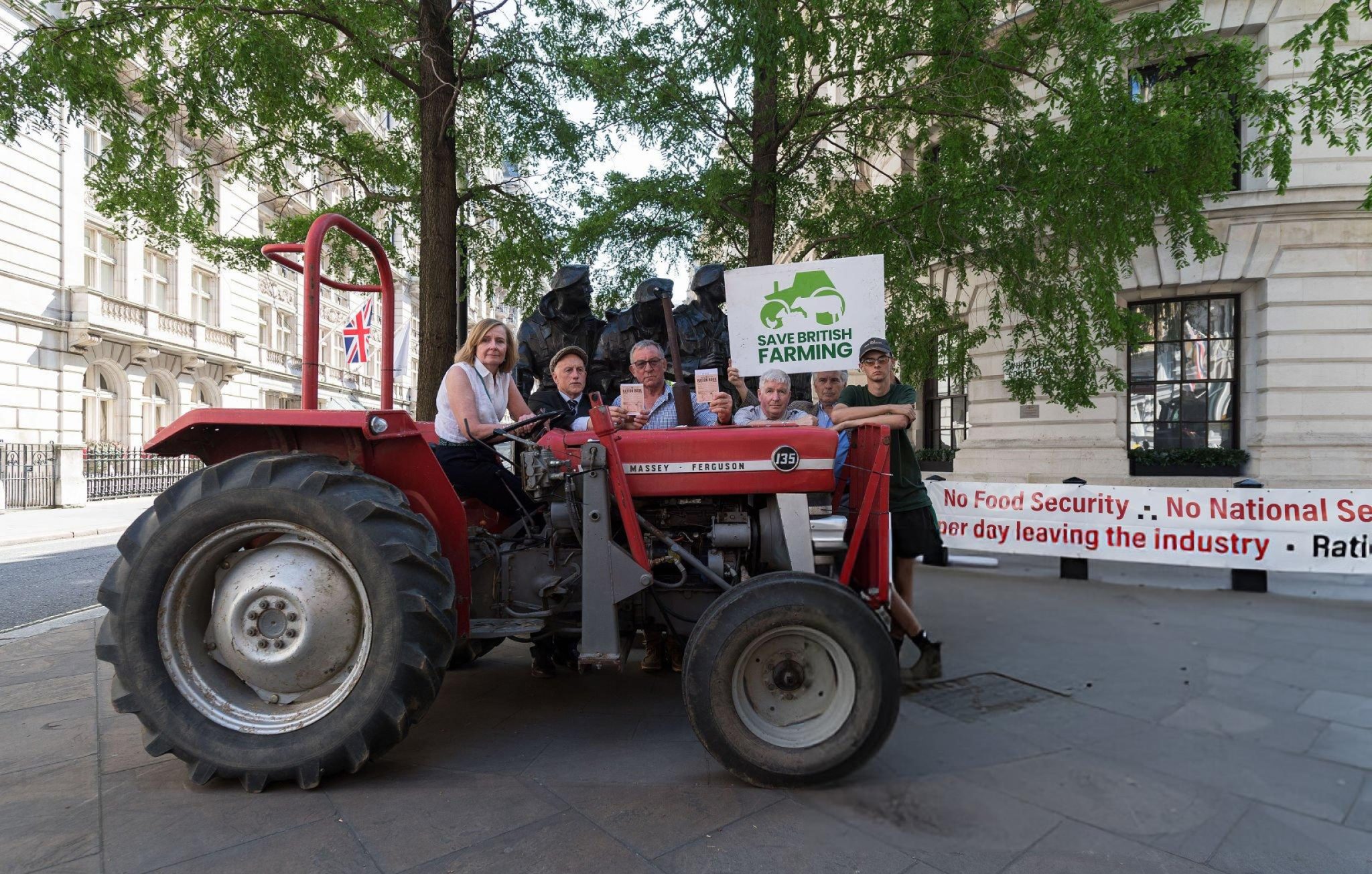Former foreign secretary James Cleverly has criticised Labour’s proposed inheritance tax reforms on farmland, warning the changes could jeopardise the UK’s food security at a time of growing global instability.
Speaking at a press conference at the National Liberal Club in Whitehall on Tuesday, Mr Cleverly voiced grave concerns about Chancellor Rachel Reeves’ plans to tax agricultural properties valued at over £1 million, saying the measure risks pushing family-run farms out of business.
His comments came as farmers from the Save British Farming campaign group staged a protest outside the venue, parking two vintage tractors in a symbolic demonstration against what they described as an “attack on rural livelihoods”.
“I do worry that this Government is really blasé about food and farming,” Mr Cleverly told reporters. “They cannot envisage a circumstance where there is even a moderate disruption of UK accessibility to core foods, particularly carbohydrates. But if they’re wrong—and the stakes are high—then the consequences could be disastrous.”
Mr Cleverly, who is also MP for Braintree, cited recent global disruptions to food supply chains, such as the Russian invasion of Ukraine, which led to soaring food prices and exposed the fragility of international agricultural systems. “We saw a nasty food inflation spike when Ukrainian grain exports were disrupted, even temporarily. That should have been a wake-up call,” he said.
His remarks echoed findings in the government’s most recent Food Security Report, published by the Department for Environment, Food & Rural Affairs (Defra) in December. The report warned of “serious risks” posed by environmental decline, climate change, and geopolitical tensions, though it concluded the UK had avoided prolonged shortages.
Nonetheless, farmers fear that changes to inheritance tax, particularly on estates already struggling with rising costs and environmental regulations, could accelerate the loss of arable land and lead to a decline in domestic food production.
Mr Cleverly called the proposed measures “one of the most stupid and counterproductive proposals I have ever seen”, accusing the Chancellor of failing to appreciate the strategic importance of agriculture.
“In this country, we treat the tech sector, car manufacturing, and defence with a level of respect and support because we understand their economic and national importance. Farming should be no different,” he said.
“We’ve stopped being scared about things we should be scared of. Just because we’ve not had food shortages in living memory doesn’t mean it can’t happen. It’s naive and dangerous to think it’s impossible.”
He warned that the political consequences of food insecurity would be devastating: “If you get to a point where voters are going hungry, then they will get angry, and they will turn on the government. And that’s not the kind of mistake you come back from quickly—it could cost Labour more than just the next election.”
Save British Farming chair Liz Webster also condemned the tax plans, describing them as “a direct threat to every farmer trying to pass their land to the next generation”. She urged ministers to rethink the policy and engage with rural communities before irreversible harm is done.
As pressure mounts, Defra has yet to issue a formal comment on Mr Cleverly’s remarks or on the farmers’ protest.
The government, meanwhile, insists that the inheritance tax reform is aimed at promoting fairness and modernising the tax system. However, critics argue it risks unintended consequences, including the decline of Britain’s already stretched domestic agricultural production.
With food security increasingly linked to global events and environmental pressures, Mr Cleverly’s warning underscores the growing tension between fiscal reform and national resilience.
As farmers and ministers await clarity on the full scope of the policy, the debate around land, legacy, and the future of British farming looks set to intensify.






